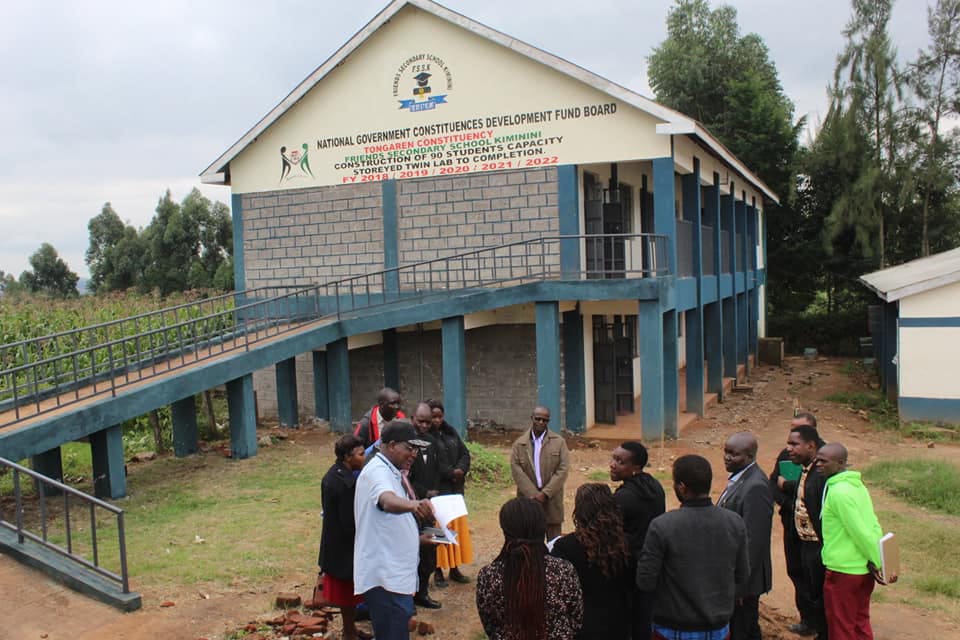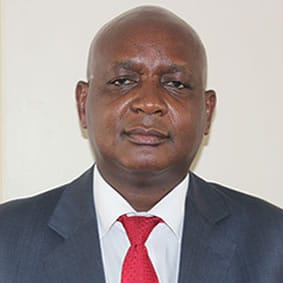Mbuno: The National Government Constituencies Development Fund (NG-CDF) Act 2015 is Constitutional

By John Kariuki
The Chief Executive Officer of National Government’s Constituency Development Fund (NG-CDF) Board Mr Yusuf Mbuno has allayed fears that the NG-CDF has been scrapped. This follows widespread misinformation that the Fund which has catalysed economic growth has been declared unconstitutional.
Through an exclusive interview with writer, Mr Mbuno clarified that the NG-CDF is still anchored in law and therefore there is absolutely no cause for alarm.
The case challenging the constitutionality of CDF Act 2013 was brought up by The Institute for Social Accountability (TISA) and the Centre for Enhancement of Good Governance and Democracy. Both cases were consolidated and the High court declared the then CDF act of 2013 as unconstitutional on four grounds:
- The Constitutionality of the process that led to the enactment of the CDF Act of 2013;
- CDF Act 2013 compliance with the constitutional Principal of Public Finance and division of Revenue;
- CDF Act of 2013 compliance with the Division of Functions between the two levels of Government [County and National Government] as espoused in the Fourth Schedule of the constitution; and
- CDF Act of 2013 compliance with the principles of separation of powers.
The High court however suspended its own judgement for a period of 12 months to afford the National Government opportunity correct those anomalies or wind up the fund altogether.

National Assembly made corrections on the four issues through enactment of the new Act, the National Government Constituencies Development Fund (NG-CDF) Act of 2015. This addressed all issues that the High Court had pointed out.
A – under the new Act, the Fund is now set aside from a minimum of 2.5% of the National Government’s share of revenue as determined by the Division of Revenue Act enacted pursuant to Article 218 of the Constitution. This is a departure from the earlier position under the old CDF Act where the Fund was set aside as a minimum of 2.5% of the ordinary Revenue.
B – on the issue of division of functions between the National and County Government as outlined in the Fourth Schedule of the Constitution, the NG-CDF Act 2015 now clearly specifies in section 24 that only projects in respect of works and services falling within the functions of the national government under the constitution can be implemented under the new Act. Therefore, there can no longer be perceived duplication of projects as it is now clear on the type of projects to be implemented under the NG-CDF Act of 2015.
C – On the issue of separation of powers between the three arms of government, the NG-CDF Act has separated the role of implementation projects and programmes to be handled by the Executive arm of government from the role of the Legislature. Under the NG-CDF Act 2015, the role of the members of the National Assemble is representation, legislation and oversight. The MP no longer sits in the NG-CDF Committee at constituency level, but exercises his/her constitutional functions through the Constituency Oversight Committee and the National Assembly Select Committee on the Fund.
four other people selected from the community. Member of Parliament not involved in appointment of constituency committees.
The ruling by the Supreme court was on the CDF Act of 2013 which had been brought for determination by The Institute for Social Accountability (TISA) and the Centre for Enhancement of Good Governance and Democracy following the decision of the Court of Appeal in 2017 that to a great extent set aside the 2015 High Court decision declaring the Act unconstitutional.
By reversing the decision of the Court of appeal, it implies that the then CDF Act of 2013 is now unconstitutional.
However, considering that since 19th February 2016 the Fund has been operating under the new NG-CDF Act of 2015, it is incorrect to assert that the Fund has been annulled.
This fund has greatly contributed to the development of the country and should be supported to continue operating. Through the fund, many new schools have been established closer to the community and many poor children have been able to access education through the NG-CDF Bursary. Security has also greatly improved across the country through the new administrative and security facilities financed by the Fund.
The Board has continuously put in place measures to improve performance of the Fund.
- To ensure there is more accountability. The Board has enhanced focus on accountability. Each constituency now submits a separate financial statement to the Auditor General each year, i.e. 290 financial statements are forwarded to the Auditor General annually, and this ensures that each constituency is held to account separately for its utilisation of resources.
- Continuous training and capacity building of Constituency Committees and Project Management Committees on issues that need to be improved has been emphasised.
- Each Constituency is put on performance contract which is evaluated annually and results published to enhance effectiveness and efficiency.





